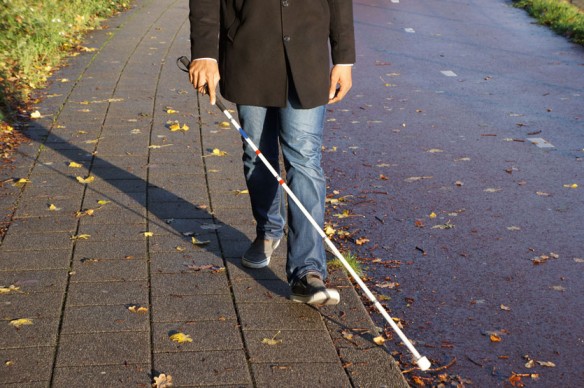A seventh-grade student from Karachi has developed a smart walking stick designed to support visually impaired individuals by helping them detect obstacles using sound and vibration alerts.
The device was recently showcased at the Bachaapreneur competition at the National Incubation Centre, where it gained attention for its practicality, thoughtful design, and the fact that it was built entirely by a school student.
The young inventor, Radhe Krishna, shared that the idea came after he watched a video online and became inspired to solve real-world problems through technology. Having experimented with robotics since Grade 5, he went through several prototypes before finalizing the current version of the smart stick.
The stick is equipped with sensors that can detect obstacles within approximately three feet. As an object gets closer, the beeping sound intensifies, giving the user a clear indication of distance. In addition to audio alerts, the stick vibrates, making it more accessible for users who may not rely solely on sound or who are in noisy environments.
Radhe personally designed and assembled the internal circuitry, including the buzzer, vibrator, and wiring system, demonstrating both technical skill and dedication. The device is rechargeable and can be powered using a standard plug-in charger, making it convenient for regular use.
Priced at around Rs 15,000, the smart stick is more expensive than a traditional white cane, but it offers enhanced functionality through its electronic sensing and feedback system. The higher cost reflects the added components and the innovation behind the product, positioning it as an assistive tech solution rather than just a mobility aid.
Looking ahead, Radhe has ambitious plans to further refine the device. He aims to:
- Add GPS-based audio navigation to guide users through voice prompts
- Improve the balance and comfort of the stick by reducing the size of the attached control box
- Upgrade the sensing system so it can detect ground-level obstacles such as potholes or steps, in addition to upper-level obstacles like walls or hanging objects
Radhe’s smart stick highlights the potential of youth-led innovation in Pakistan, particularly in the fields of robotics, accessibility, and assistive technology. With the right mentorship, resources, and exposure, projects like his can evolve into scalable solutions that transform lives and make cities more inclusive for people with disabilities.
